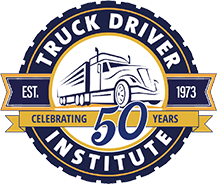How To Be a Good Truck Driver

Truck driving requires specific skill sets and aptitudes to prepare for situations on and off the road. Whether you’re new to the trucking career path or a well-versed driver, set on achieving excellence, learning how to be a good truck driver is a lifelong pursuit. It’s a demanding profession that allows individuals to thrive after they’ve developed the right personal qualities, driving practices, and credentials.
What Defines a Good Truck Driver?
Being a good truck driver involves an amalgamation of both hard and soft skills. This means that while the job requires individuals to obtain technical knowledge about their rigs and routes, trucking also encourages the development of a few critical intrapersonal qualities that enable drivers to thrive on the job.
A truck driver’s success depends on the completion of their haul and the many smaller ways that they manage life on the road daily. In short, a good trucker is always certified, mechanically sound, and road-safe while practicing soft skills such as good communication, flexibility, and patience.
How To Be a Good Truck Driver On and Off the Road
Becoming a good driver is a lifelong endeavor for any trucker who has committed themselves to such a multifaceted career path. The qualities and skills listed below are just a few milestones toward long-haul excellence.
Obtain the Necessary Qualifications
All good truckers share one essential quality—a commercial driver’s license (CDL) certification from a reputable trucking school, such as TDI. Through a series of written and practical skills tests, these accredited and comprehensive training programs will award hardworking graduates with the necessary licensing that enables them to be hired by carriers and safely operate their rigs—no matter where the road may lead.
Maintain Excellent Road Safety
Beyond getting your freight to its destination, your most important duty as a trucker is to stay extremely safe on the road. Remember that you are responsible for your own well-being and the well-being of any passengers and other motorists around you; maintaining excellent road safety practices is always paramount.
Before setting out on a job, a good truck driver always completes a pre-trip inspection that ensures the functionality of their rig’s engine, brake, fuel, and coupling systems. They’ll ensure everything is orderly and strapped down in the cab—including their own personage—by using a seatbelt.
Once a trucker hits the road, they’ll comply with traffic and safety laws and maintain a high level of awareness regarding road signage, blind spots, mirrors, and speed limits. Keeping a safe distance from other vehicles and practicing defensive driving techniques is essential, given the comparable size and weight of a rig.
Importantly, a good trucker never drives while tired or when road conditions are especially inclement or hazardous. Instead, get adequate sleep and design a driving schedule that allows for regular rest and nutrition breaks.
Develop Clear Communication Skills
Though you inevitably spend many long hours alone on the road as a trucker, remember that you are always part of a larger continuum. You’ll need to remain in constant close contact with dispatchers, fellow drivers, stakeholders, and any pertinent pick-up or drop-off personnel.
Because many critical points of contact in a given haul are dispersed over large geographic areas, efficient, clear communication is crucial to streamlining logistics, eliminating redundancies, and staying on schedule. In addition, familiarizing yourself with CB radio devices and terminology, along with any company apps and/or social media, will help keep you in the know and the loop.
Learn Vehicle Maintenance and Mechanical Basics
While truckers don’t need to be complete experts on the complex inner workings of their rigs, having basic mechanical knowledge and training certainly comes in handy. Light preventative maintenance and regular, thorough inspections will help keep you and your cargo safe.
Discovering the ins and outs of rig maintenance can mean the difference between how to be a good truck driver and how to be a great one. Truckers should always know how to troubleshoot basic repairs like replacing fluids, bulbs, or flat tires when something goes awry. They should also be able to take tire chains on and off, couple and uncouple trailers, and perform season-specific equipment assessments.
Practice Flexibility and Adaptability
Flexibility is one of the most appealing perks of trucking as an occupation; drivers can forgo the standard 9 to 5 grind in favor of choosing their own hours, adventurous or scenic routes, and when to spend their vacation time.
Beyond the independence that flexibility affords, it is also a crucial trait that helps drivers deal gracefully with any unexpected circumstances on the road. Seasonal weather events, traffic accidents, road closures, cargo delays, and mechanical problems are just some of the complications drivers may encounter while trying to make efficient time on a route.
In these situations, staying composed and problem-solving using the resources at hand is essential, or adjusting a route accordingly. Patience is key, and a good truck driver knows there is a solution to almost any problem and that keeping a level head and a positive attitude will usually get you where you need to go.
Ask for Advice
Trucking is not only a profession but a thriving community that has developed and enriched itself over many generations. Trucking brings together thousands of diverse individuals that span the nation, and each has a wealth of knowledge that they are eager to impart to their fellow drivers. Learning to ask for advice can be a humbling but necessary part of realizing your full potential on the road; mutual enrichment and collaboration are intrinsic parts of what makes trucking so unique.
Moreover, the trucking industry is ever-evolving, with new technologies and regulations constantly appearing on the horizon. Asking for advice at training sessions, workshops, and larger conferences will help you stay up-to-date on any developments that may significantly impact your role and trucking best practices.
Become a Top Tier Driver With TDI
The first and most crucial step in learning how to be a good truck driver is to get your CDL certification. TDI has helped truckers realize their full potential since 1973 and is proud to provide top-tier educational programs for aspiring truckers nationwide. With 11 campuses in 7 different states, TDI will provide you with all the skills you’ll need to succeed, empowering you to complete your CDL training in as little as three weeks.
Be the best driver you can be by working closely alongside our incredible industry professionals, as they provide you with hands-on experience and share decades of hard-won expertise. Get in touch today and learn how to face the challenges of the road with self-assurance and confidence.
Get Started
Get your Class A CDL in our friendly, supportive CDL training program. TRAIN with experienced instructors – multiple good-paying, secure job choices with benefits available for eligible graduates. EARN $700 – $1000+ / week to start as a truck driver. Get started today by filling out the form below. We look forward to hearing from you!



